Movie review: 'IF' squanders imagination
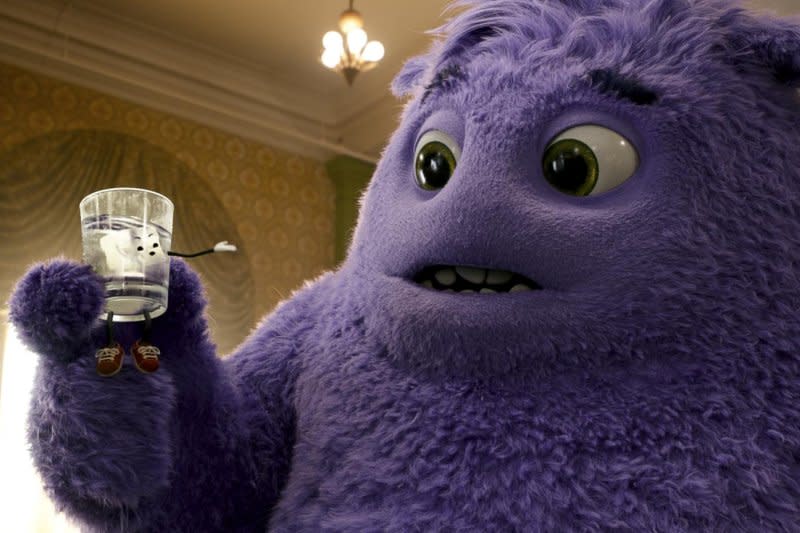
- Oops!Something went wrong.Please try again later.
LOS ANGELES, May 15 (UPI) -- Writer/director John Krasinski made the original fantasy comedy IF, in theaters Friday. Unfortunately, IF still suffers from the same narrative issues that plague the rest of Hollywood franchise films.
Bea (Cailey Fleming) lost her mother (Catherine Daddario) to cancer and now her father (Krasinski) is in the hospital for heart surgery. While staying with her grandmother (Fiona Shaw), Bea discovers a world of imaginary friends, or IFs.
Krasinski introduces IFs with a sense of magic and mystery, but the magic fades quickly when the IFs explain all the rules and exposition. It's trying to create childhood magic via Hollywood's tendency to overexplain convoluted plots.
Blue (voice of Steve Carell), explains that IF is both short for imaginary friend but also "what if?" Let there be no interpretation the film doesn't explicitly explain.
Cal (Ryan Reynolds) is a grown-up caretaker of the IFs, who are now childless since their kids grew up. Even Bea doesn't feel she needs an imaginary friend at 12.
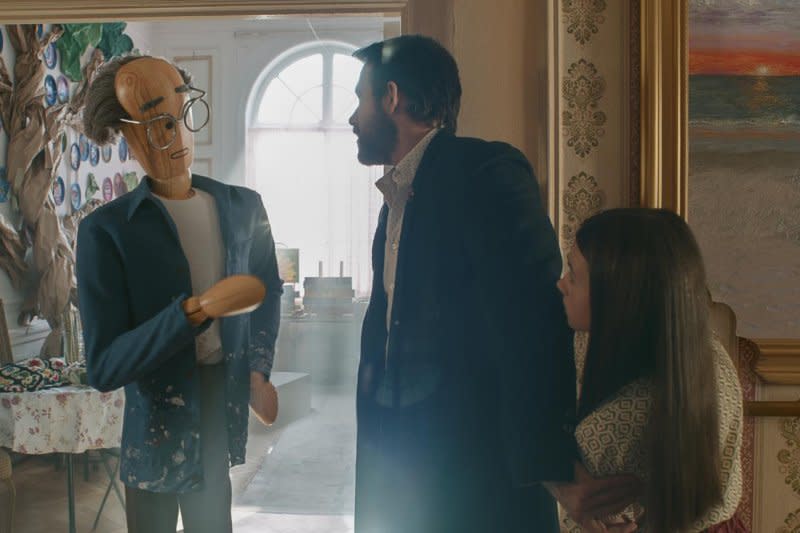
But, Bea decides to occupy her time helping these stray IFs find new children to befriend. That's a fine plot for a movie but that's not really what If ends up doing.
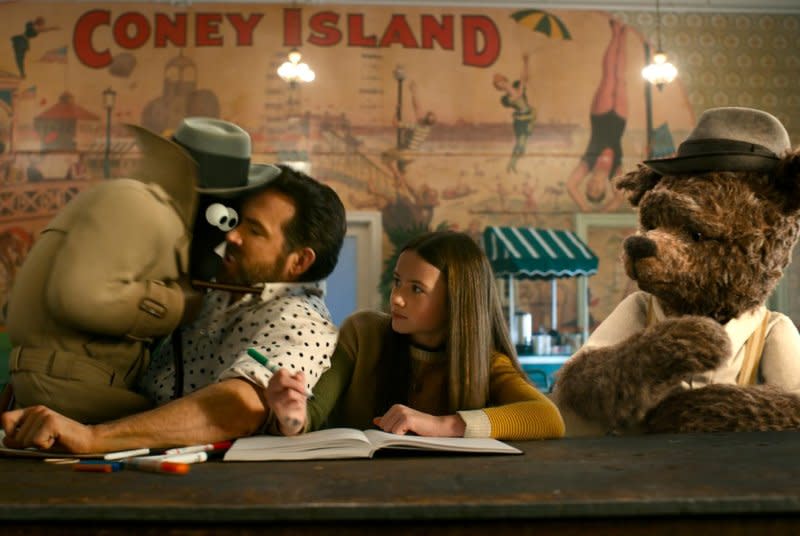
At one point, Bea discovers she has powers of imagination, and never uses them again. Then she decides to attempt to make adults remember their imaginary friends, which may be valid but abandons the idea of matching needy kids with magical friends.
One sequence puts Cal in footage with a late singer (and some shots with a double). The singer may have approved this before she died last year, and her estate certainly approved it, but it's as questionable as the uses of deceased performers in The Flash and Ghostbusters: Afterlife.
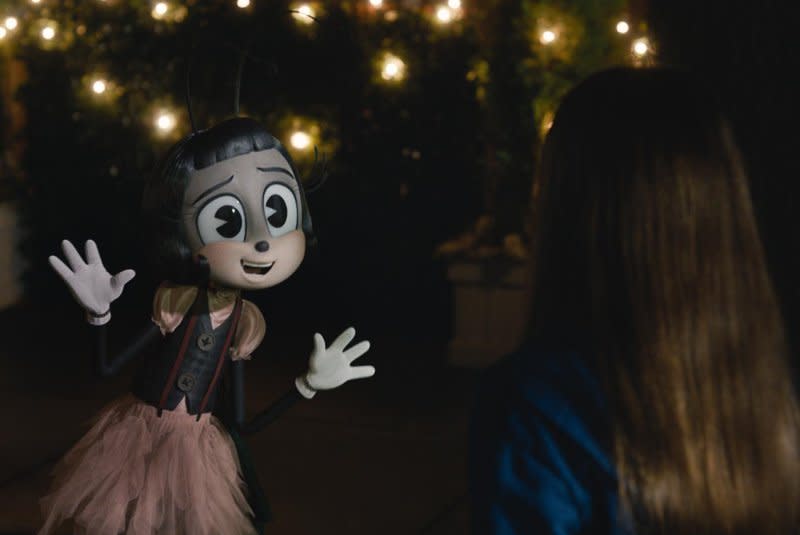
Many great children's movies deal with death, so that is not a problem. But, IF may be using the magic to avoid having difficult conversations.
In the beginning, Bea asks her father to stop trying to make the hospital fun for her and she's right. Children are allowed to feel sad when sad and scary things are actually happening.
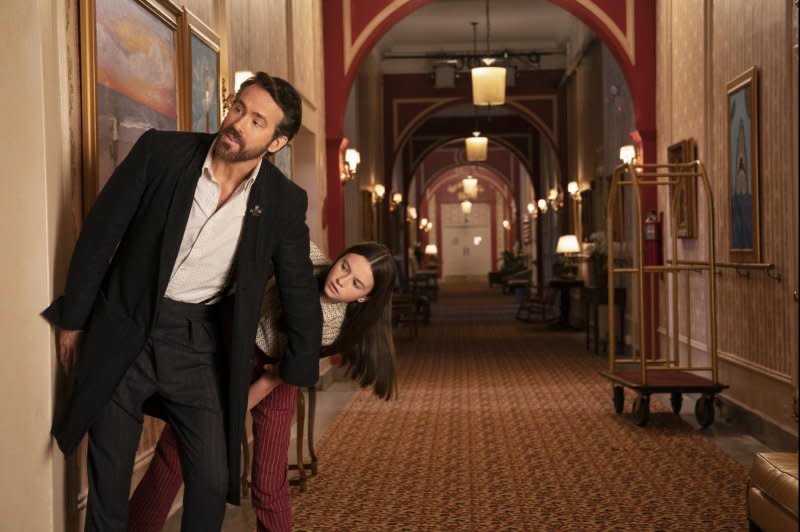
But, it's portrayed as endearing and noble when her father refuses to stop choreographing whimsical dance numbers with his IV stand. This leads to problems with the disjointed threads of the later story too.
Perhaps it is bittersweet that kids grow up and forget their IFs. It's not bad though. Maturing is good and the Toy Story films knew that the toys couldn't stop the kids from growing up.
Thus, matching IFs with new kids would be the more constructive way to go. Maybe some adults could use a return to childlike whimsy. That's valid, but the film fails to articulate what made IFs valuable to them in the first place.
One IF gives a businessman the confidence to make a difficult presentation. Is that really what imaginary friends do though? Most kids make up IFs for companionship, perhaps to explore flights of fancy on which humans can't accompany them.
Imaginary friends are perfectly healthy for kids, but ultimately it's human connections everyone needs. Bea does make a friend in the hospital, but the value the IFs provide is inconsistent at best.
IF may take place in the past as there are no cell phones, and TVs appear to be pre-flat screen models, but the film never specifies. If it's modern it would be weird that these kids never use cell phones.
It certainly takes place in a world where the American medical system does not exist. Bea's father spends days in the hospital before his procedure. For one, why? Second, Bea's dad is a monster taking a bed away from a patient in need. Third, who pays for those days?
The IFs are original creatures to the extent that they are not based on pre-existing characters, except for the gummy bear and '80s robot. There is a wide variety of different IFs from furry bears to a smooth porcelain doll-like ballerina, a wooden painted, a banana, even an ice cube.
The IFs are not funny though. Blue is just loud. A green blob blubbers and cries. There's a New Jersey rat and a bubble that pops, but these are just stereotypes or literal interpretations. Mostly, the IFs just pratfall and make noise.
Cal doesn't make many quips about the IFs either. Reynolds is adept at performing physical comedy with IFs, which is impressive considering they are all added into the scene later, but the material doesn't even warrant that skill.
There are better movies about kids using imagination to cope with the hardships of life. Films like The Neverending Story, Labyrinth, Bridge to Terabithia and the more adult Pan's Labyrinth do what IF wishes it could.
Fred Topel, who attended film school at Ithaca College, is a UPI entertainment writer based in Los Angeles. He has been a professional film critic since 1999, a Rotten Tomatoes critic since 2001, and a member of the Television Critics Association since 2012 and the Critics Choice Association since 2023. Read more of his work in Entertainment.

